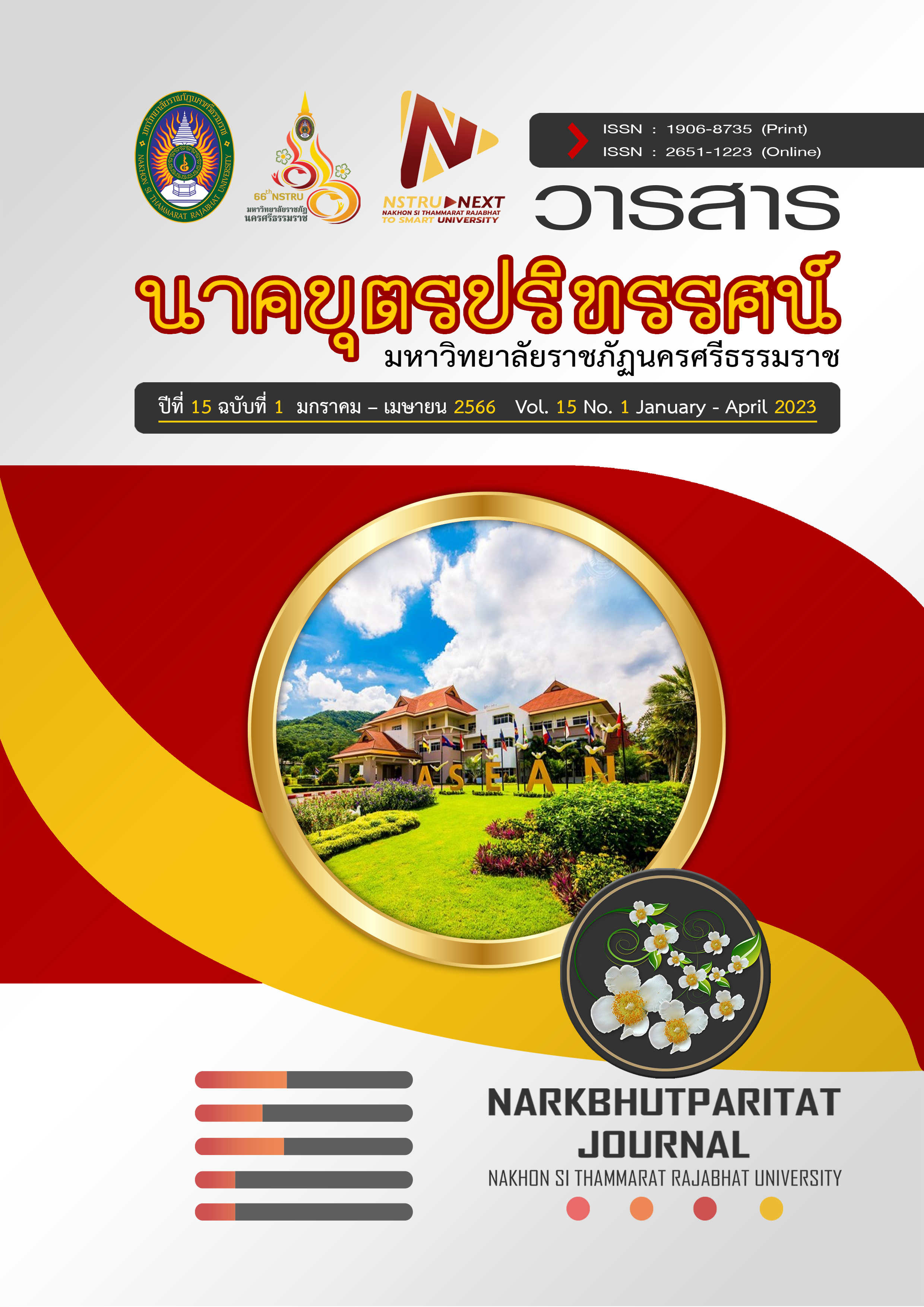ผู้ประกอบการเพื่อสังคม: ความหมาย และสมรรถนะหลักที่พึงมี สู่การประกอบการทางสังคมที่ยั่งยืน
Main Article Content
บทคัดย่อ
ในศตวรรษที่ 21 ถือเป็นการปรับเปลี่ยนวิธีคิด สมมติฐาน มุมมอง คุณค่า และวิธีปฏิบัติที่ต้องการให้เกิดการแบ่งปันร่วมกันในสังคม ก่อเกิดแนวคิดในการประกอบการใหม่ ๆ ขึ้นมาที่เรียกว่า “การประกอบการทางสังคม” เพื่อแปลงโฉมสังคมให้ดีขึ้นกว่าเดิม ในการสรรค์สร้างนวัตกรรมแก้ปัญหาต่าง ๆ ในสังคม เช่น ลดความยากจน ลดความป่วยไข้ ขจัดความโง่เขลาไม่รู้หนังสือ รักษาสิ่งแวดล้อม เคารพสิทธิมนุษยชน และหยุดการทุจริต โดยบุคคลที่ริเริ่มไม่ว่าจะเป็นบุคคลธรรมดา กลุ่มบุคคล ชุมชน หรือนิติบุคคล หากแต่มีความมุ่งมั่น ตั้งใจในการแก้ปัญหาทางสังคม แสวงหาโอกาสในการสร้างคุณค่าทางสังคม จากการร่วมกันทำงานเพื่อตอบสนองความต้องการของสังคม ควบคู่กับการหาช่องทางการขับเคลื่อนจากการสร้างคุณค่าทางเศรษฐกิจ คอยหล่อเลี้ยงการดำเนินกิจกรรมทางธุรกิจ เพื่อมาต่อยอดโครงการที่เป็นประโยชน์แก่สังคมให้เกิดความยั่งยืน ที่เรียกว่า “ผู้ประกอบการเพื่อสังคม” และเพื่อให้เกิดการสร้างผู้ประกอบการเพื่อสังคมให้เป็นผู้สร้างการเปลี่ยนแปลงทางสังคม บุคคลเหล่านั้นจึงควรมีสมรรถนะหลักที่อยู่ภายในตัวของผู้ประกอบการเพื่อสังคม ได้แก่ การมีแรงจูงใจเพื่อการสร้างการเปลี่ยนแปลงทางสังคมหรือมีวิสัยทัศน์การสร้างสิ่งที่ดีแก่สังคมเป็นหลัก ลักษณะนิสัยแสวงหาโอกาสใหม่ ๆ คิดนอกกรอบ และบทบาททางสังคม มีความรับผิดรับชอบต่อผู้มีส่วนได้ส่วนเสียเป็นสำคัญ พร้อมกับสมรรถนะที่อยู่ภายนอกของผู้ประกอบการเพื่อสังคม ได้แก่ ความรู้โดยเป็นความสามารถในการริเริ่มสร้างกิจการให้ประสบความสำเร็จ ทักษะที่ผู้ประกอบการเพื่อสังคมควรมีมากกว่าผู้ประกอบการธุรกิจทั่วไป คือ สมรรถนะการจัดการ คือ การวางแผน การตัดสินใจ การสื่อสาร ที่เป็นความสามารถในการสร้างความสัมพันธ์แก่ผู้มีส่วนได้ส่วนเสียสมรรถนะทางสังคม (Social Competence) คือ การทำงานร่วมกันและการสร้างเครือข่าย
Article Details

อนุญาตภายใต้เงื่อนไข Creative Commons Attribution-NonCommercial-NoDerivatives 4.0 International License.
เอกสารอ้างอิง
Akaraborworn, C. (2006). Competency: What is this. Dumrungrachanupap Journal, 6(20), 1-3. (inThai)
Attalagupta, A. (2016). The Study of Core Competency of Small and Medium Enterprises (SMEs) Entrepreneurs in Bangkok to Integrate into The ASEAN Community. (Master of Business Administration Thesis). Rajamangala University of Technology Rattanakosin. Program in Management. (inThai)
Bikse, V., (2011). Entrepreneurial Abilities. Riga: Art & Design SIA.
Bikse, V. & Riemere, I., (2013). The Development of Entrepreneurial Competencies for Students of Mathematics and Science Subjects: The Latvian Experience. Procedia–Social and Behavioral Sciences, 82(2013), 511–519.
Bikse, V., Rivza, B. and Riemere, I. (2015). The social entrepreneur as a promoter of social advancement. Social and Behavioral Sciences, 185(2015), 469–478.
Borisut, S. and Pakasat, N. (2019). The Effects of Human Capital Entrepreneur characteristic on the successful operation of Gen Y. Veridian E-Journal, Silpakorn University Humanities, Social Sciences, and Arts. 12(5), 1090-1107. (in Thai)
Boyatzis, R.E. (1982). The Competence Manager. New York: McGraw-Hill.
Ellis, T. (2010). The New Pioneers: Sustainable business success through social innovation and social entrepreneurship. (Laksomboon, Trans.) Chichester, UK: Wiley
Guritno, P., D., Suyono, H. and Pandowo, M., H. C. (2019) Competency Model of Social Entrepreneurs: Learning from Successful Indonesian Social Entrepreneurs. International Journal of Research in Business and Social Science, 8(3), 94-110.
Henton, D., Melville, J. and Walesh, K., (1997). Grassroots Leaders for a New Economy: How Civic Entrepreneurs are Building Prosperous Communities. San Francisco, Jossey–Bass Publishers.
Janus, K. K. (2017). Social Startup Success: How the Best Nonprofits Launch, Scale Up, and Make a Difference. (Ponpala, Trans). Boston: Da Capo Lifelong Books
Jomtraikob, R. and Intarawong, V. (2015). Definitions and Concept of Entrepreneurship. Journal of Liberal Arts and Management Science Kasetsart University, 2(1), 249-290. (in Thai)
Kerr, S. P., Kerr, W. R. and Xu, T. (2017) Personality Traits of Entrepreneurs: A Review of Recent Literature. Harvard Business School. Retrieved 2021, August 2, from https://www.hbs.edu/ris/Publication%20Files/18-047_b0074a64-5428-479b-8c83-16f2a0e97eb6.pdf
Khunla, N. and Suttapong, K. (2015). Knowledge Management for Creating Organizational Success. Executive Journal, 35(1), 133-141. (in Thai).
Ladeira, F. and Machado, H. P. V. (2013). Social Entrepreneurship: A Reflection for Adopting Public Policies that Support the Third Sector in Brazil. Journal of Technology Management and Innovation, 8(Special Issue ALTEC), 188-196.
Martin, R. and Osberg, S. (2007) Social Entrepreneurship: The Case for Definition. Stanford Social Innovation Review, 5(2017), 28.
Mort, S., Weerawardena, G., J. and Carnegie, K., (2003). Social entrepreneurship: towards conceptualization. International Journal of Nonprofit & Voluntary Sector Marketing, 8(1), 76–88.
Nimnouan, S. (2018). The Core Competency Development Affecting to Career Path of Tourism Personnel in Tourism Department, Ministry of Information Culture and Tourism, Lao People’s Democratic Republic. Journal of Interdisciplinary Research: Graduate Studies,
(1), 138-145. (in Thai)
Noonin, S. (2012). Social Enterprise for Sustainable Development. University of the Thai Chamber of Commerce Journal, 32(4), 196–206. (in Thai)
Ohio University. (2020). Seven Skills for Social Entrepreneurs. Retrieved 2021, August 2, from https://onlinemasters.ohio.edu/blog/seven-skills-for-social-entrepreneurs ters.ohio.edu/blog/seven-skills-for-social-entrepreneurs.
Parinyasutinon, U. (2020). Social Enterprise. Bangkok: Chula Press. (in Thai)
Prateeppornnarong, T. (2020). Sustainable Development and Social Enterprise. Nonthaburi: Rattanatri. (in Thai)
Roper, J. and Cheney, G. (2005). Leadership, learning and human resource management the meanings of social entrepreneurship today. Corporate Governance International Journal of Business in Society, 5(3), 95-104
Saikrajang, C. (2015). Guidelines in developing effectiveness of small and medium tour operator with the entrepreneurship reinforcement. (Master of Arts Thesis). National Institute of Development Administration, Program in Integrated Tourism Management. (in Thai)
Sakolsuraaekkapong, S. (2016). Factors Influencing Efficient Social Enterprise in Thailand. Journal of politics, administration and law, 8(1), 139-161. (in Thai)
Sherman, S. (2011) Teaching the Key Skills of Successful Social Entrepreneurs. Retrieved 2021, August 2, from https://ssir.org/articles/entry/teaching_the_key_skills_of_successful_social_entrepreneurs
Sonsuphap, R. and Kesapradist, B. (2018). Social Security of Social Enterprise Paths to Sustainable Development. National Defence Studies Institute Journal, 9(3), 27-38. (in Thai)
Spencer, L., M. and Spencer, S., M. (1993) Competence at work: Models for Superiors Performance. New York: Jonh Wiley and Sons.
Sutipan, M. (2013). The Way Out of Thai Business to Sustainable Development. Thammasat Business Journal, 36(137), 38-50. (in Thai)
Tantayanon, R. (2017). Social Entrepreneur and Social Innovation. Retrieved 2021, August 2, from https://www.bangkokbiznews.com/blog/detail/641032. (in Thai)
Wuttirong, P. (2010). Core Competency: The possibility of current and important step towards the future. Chulalongkorn Review, 22(88), 39-51. (in Thai)


